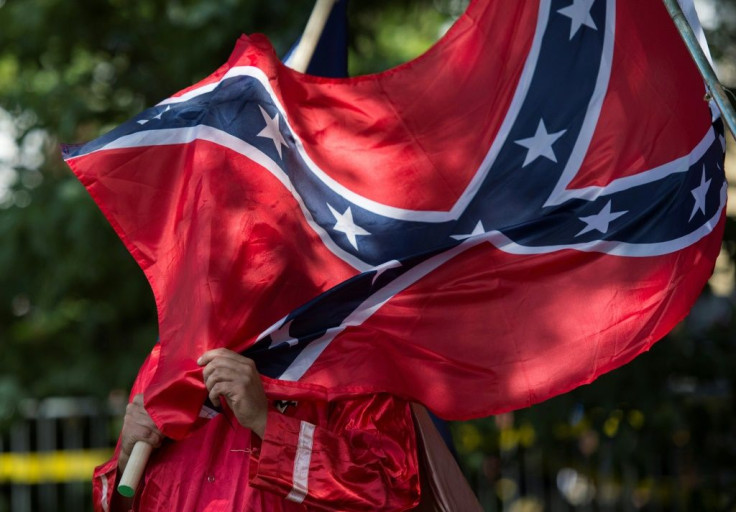Trump Declines To Call Confederate Flag Racist, Calls It ‘Proud’ Symbol Of The South

In an interview Sunday on Fox News, President Trump refused to call the flag of the Confederacy a racist symbol. Instead, he said that the flag, which dates back to the Civil War, is a symbol of pride for people who “like the South.”
“It depends on who you’re talking about, when you’re talking about,” Trump said. “When people proudly had their Confederate flags they’re not talking about racism. They love their flag, it represents the South. They like the South... I say it’s freedom of many things, but it’s freedom of speech.”
Flown by the Confederate States of America starting in 1863, many have since considered the flag a racist symbol for the oppression of Blacks. Some on the other side claim that it is merely a symbol of Southern heritage.
With the recent rise in conversations about the history of racism in the U.S., many have recently denounced the flag and called for it to be removed from public spaces.
Trump, meanwhile, has seemed hostile to these conversations. Earlier in July, he criticized NASCAR’s decision to ban Confederate flags from events and pledged to oppose legislation that would rename military bases named in the honor of Confederate military figures.
“We won World Wars out of these, out of these military bases, no I’m not gonna go changing,” Trump said on Friday. “I’m not gonna go changing.”
Despite Trump’s unflagging support, recent polls show that most Americans, even those in the South, consider the flag a symbol of hatred. In deference to public opposition, Mississippi recently announced the removal of the flag’s design from their state flag and the Department of Defense on Friday confirmed that the flag would be banned from all military installations.
© Copyright IBTimes 2025. All rights reserved.





















